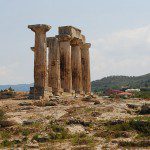
Early this afternoon, I recorded a joint virtual podcast interview with Troy Ables, of The Last Dispensation, and Jarred Davies, from Christian Homestead. I’ll try to mention it when the interview goes up, just in case anybody out there is even remotely interested. (I expect that some of my most obsessive critics will want to hear it, at least.)

(Wikimedia Commons public domain image)
Latter-day Saints don’t use the term natural theology very often, if at all. In fact, we don’t commonly use the word theology standing by itself. Moreover, I have friends who object in principle to both terms. I don’t — though I do think that both natural theology and theology more generally have distinct limitations and certain dangers.
Natural theology consists of rational arguments for the existence of God that do not appeal to scriptural texts (e.g., to the Bible or the Book of Mormon or the Qur’an). They are called natural theological arguments in contrast to those of revealed theology, which derive via exegesis from sacred writings. These arguments claim that sufficient natural reasons are available to justify belief in God.
Another useful concept is that of general revelation, as opposed to special revelation. General revelation is so called because it is generally available to all. Everybody can, at least in principle, observe the regular motions of the stars and the planets, the cycles of the tides, the succession of the seasons, the cellular complexity living things, the curiousness of the Cambrian Explosion, and so forth. Special revelation refers to divine communications granted to individual prophets or sages, perhaps preserved in scriptures.
The sheer existence of a deity is a proper subject for natural theology. The deity of Christ or his resurrection is, however, not a matter for a natural-theological approach. Neither is the plan of salvation nor the need for living or vicarious baptisms. Such things must be revealed; we would never reason ourselves to them by contemplating the stars or inspecting the structure of a cell. To put it perhaps another way, unaided reason or natural theology can get us to deism, perhaps, but not to Christianity as such, let alone to the Restored Gospel.
Sometimes natural-theological arguments are termed theistic proofs. I will say right upfront, though, that, while I judge some of them to carry real force, I don’t believe them to be inescapable or irresistible “proofs” in the same sense that mathematical proofs or demonstrations are. For a valid proof in geometry, for example, anybody who accepts the premises must necessarily also accept the conclusion. The theorem flows inescapably from the axioms on which it is based. That, I think, is not the case for theistic “proofs.” At most, they yield probabilistic outcomes.
I have never been fond of the ontological argument, which does claim to yield an indubitable demonstration of the necessary existence of God on the basis, purely, of analysis of the concept of deity. So I omit it here. The major remaining classical arguments of natural theology — e.g. the cosmological and design arguments, and the arguments from religious experience and from morality — are more or less empirical arguments. They depend upon inferences from features of the ordinary world in which we live rather than from scripture or canonized revelation.
I find value in many of these arguments although, as said above, I don’t find them intellectually “coercive” and I think that they are best combined together to provide a cumulative case. The cosmological argument suggests the existence of a superpowerful creator, the teleological argument seems to indicate the probable existence of a cosmic designer, the moral argument points toward the existence of a transcendent moral law and, accordingly, to the existence of a transcendent lawgiver. They might be compared to a line-up of witnesses at a trial, each bearing testimony in its own way to the overall truth.
When it comes to specifically Christian matters like the resurrection of Christ, the argument concerns empirical data and “inference to the best explanation,” not to syllogistic proof. On the other hand, if one becomes convinced of the historicity of Christ’s physical resurrection from the dead, that too becomes an argument back to the existence of God, because such a resurrection seems impossible in a literally Godless world.
Does the Bible offer natural-theological arguments for the existence of God? Not very often. Probably because atheism was rare in the world of the ancient Hebrews and even in the world of the first Christians. Those who rejected the biblical deity were far more likely to be polytheists or pantheists, or to worship a different monotheistic or henotheistic god, than they were to be atheists.
Another reason, related to the one just given, is that people can and generally do come to belief in a God apart from reasoned natural-theological arguments — and that the believers of the Bible were overwhelming just such believers. John Calvin claimed that all normal people possess an innate sense of deity (the sensus divinitatis). (See John Calvin, Institutes of the Christian Religion 1.3.1; also 1.4.1). The great Catholic Thomist scholar Etienne Gilson likewise maintained that “quite apart from any philosophical demonstration of the existence of God, there is such a thing as a spontaneous natural theology.” This, he wrote, is a “quasi-instinctive tendency, observable in most men,” that impels “them to wonder from time to time if, after all, there is not such an unseen being as the one we call God” (Etienne Gilson, God and Philosophy [New Haven, CN: Yale University Press, 1941], 115).
But the Bible does, nonetheless, sometimes provide very brief and rudimentary natural-theological arguments. Here is a trio of examples:
“For the invisible things of him from the creation of the world are clearly seen, being understood by the things that are made, even his eternal power and Godhead; so that they are without excuse.” (Romans 1:20)
“The heavens declare the glory of God; and the firmament sheweth his handywork.” (Psalm 19:1)
“The fool hath said in his heart, There is no God.” (Psalm 14:1 = Psalm 53:1)
The Book of Mormon, too, offers a few comments of this type. Do such arguments have any value, if faith can and often does exist without them and if they are not absolutely rock solid and beyond dispute? I would argue that, yes, they do. They can, for example, challenge unbelief and impel a search for faith. If they convince someone that belief in God is at least plausible, that person may then move on to consider the claims of Christ. Not half bad, that.













